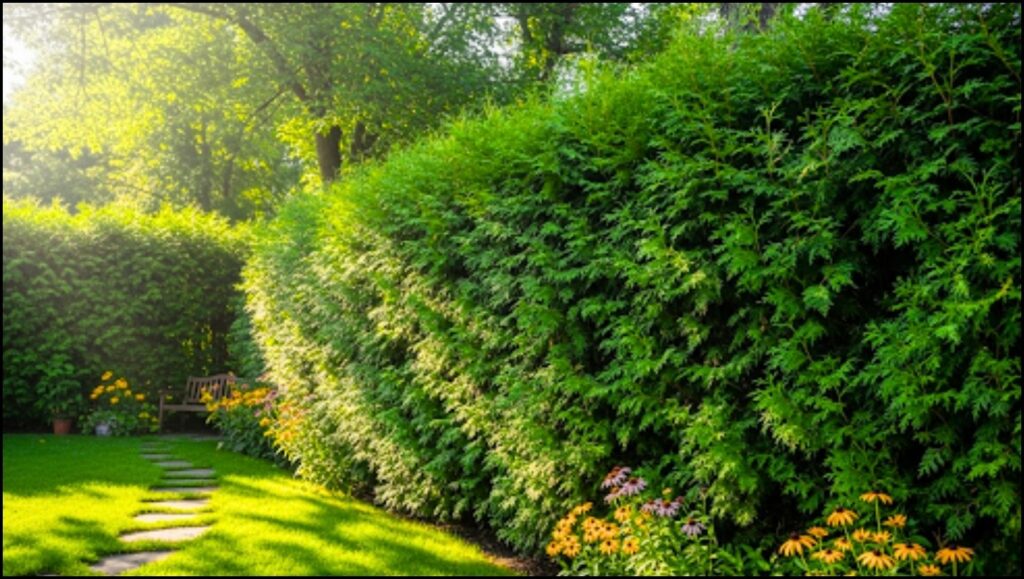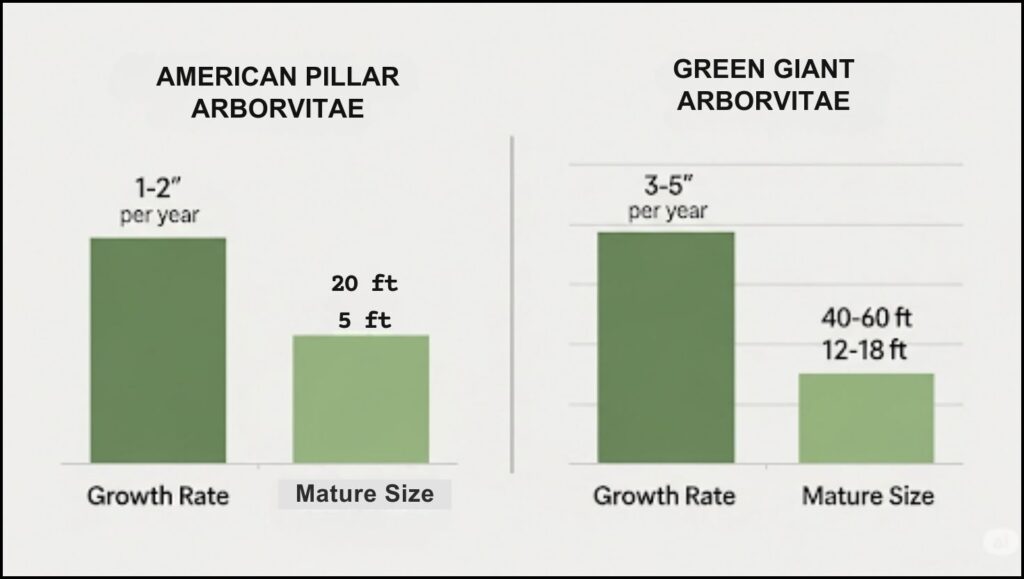As urbanization continues to increase, homeowners are increasingly seeking natural methods to create secluded outdoor spaces. The demand for fast-growing privacy plants has surged as an efficient, aesthetic, and sustainable solution for creating natural screens and barriers. These plant selections offer a quick way to establish a lush, private backyard, providing a living alternative to traditional fencing. The right choice can transform a yard, offering sound dampening, wind protection, and a habitat for local wildlife. This guide explores six effective, fast-growing options suitable for various climates and landscaping needs.

Key Insights into Privacy Landscaping
| Key Fact | Detail/Statistic |
| Growth Rate | Some privacy plants can grow up to 3-5 feet per year, establishing a full screen in just a few seasons. |
| Benefits | Provides aesthetic value, reduces noise pollution, improves air quality, and creates habitats for pollinators and birds. |
| Environmental Impact | Reduces the urban heat island effect by providing shade and evapotranspiration, lowering ambient temperatures. |
Top 6 Selections for Rapid Screening
The selection of a privacy plant depends on several factors, including local climate, soil type, and the desired aesthetic. The following plants are renowned for their impressive growth rates and effectiveness in creating a privacy screen.
American Pillar Arborvitae (Thuja occidentalis ‘American Pillar’)
The American Pillar Arborvitae is a standout choice for its narrow, columnar shape and fast growth. This cultivar of the native American arborvitae is known for growing up to 3 feet per year, reaching a mature height of 20-25 feet with a width of just 3-4 feet. According to The Morton Arboretum, its compact form makes it ideal for tight spaces where a wide hedge would be impractical. This plant requires minimal pruning and is generally low-maintenance, thriving in full sun and well-drained soil. It’s also highly resilient to cold and is deer-resistant, a significant advantage in suburban areas.
Green Giant Arborvitae (Thuja ‘Green Giant’)
The Green Giant Arborvitae is a hybrid with a powerful growth rate, often exceeding 3 feet annually. It can reach heights of 40-60 feet and widths of 12-20 feet at maturity, making it an excellent choice for a large, robust privacy screen. The U.S. Department of Agriculture (USDA) notes its exceptional disease resistance and tolerance to a wide range of soil conditions. Its dense, dark green foliage provides year-round screening, and its conical shape offers a formal yet natural appearance. It is a favored choice for large properties and commercial landscapes due to its durability and fast-establishing nature.

Leyland Cypress (Cupressus × leylandii)
Historically one of the most popular privacy plants, the Leyland Cypress is famous for its extremely rapid growth, sometimes up to 4 feet per year. It can reach a soaring height of 60-70 feet, forming a dense, tall barrier. Clemson University Extension reports that while its fast growth is a major benefit, homeowners should be aware of its need for ample space and potential susceptibility to certain diseases and pests, particularly in humid climates. Regular pruning is essential to maintain its shape and health and to prevent it from becoming a monolithic and unruly screen.
Holly (Ilex species)
Various species of holly, such as the Nellie Stevens Holly, offer an elegant and effective privacy solution. These evergreen shrubs feature glossy, dark green leaves and can grow at a moderate to fast rate, typically 1-2 feet per year. They can reach heights of 15-25 feet and are known for their dense, pyramidal shape. According to experts at the Royal Horticultural Society, hollies provide excellent year-round screening and are generally low-maintenance once established. The Nellie Stevens variety is particularly noted for its hardiness and ability to produce bright red berries in winter, adding a splash of color to the landscape.
Bamboo (Bambusa species)
Clumping bamboo varieties, such as Fargesia, provide a rapid, exotic, and highly effective privacy screen. Unlike running bamboo, which can be invasive, clumping bamboo stays in a contained area, making it a safer choice for residential landscapes. According to the American Bamboo Society, some clumping varieties can grow several feet in a single season, creating a dense, rustling screen that adds an auditory dimension to privacy. Bamboo thrives in moist, well-drained soil and requires minimal maintenance. Its vertical stalks and feathery leaves create a unique, tropical aesthetic that works well in modern and traditional garden designs.
Schip Laurel (Prunus laurocerasus ‘Schipkaensis’)
The Schip Laurel, or Skip Laurel, is a robust and highly adaptable broadleaf evergreen that creates a dense screen quickly. With a growth rate of up to 2 feet per year, it can reach a height of 10-15 feet and a width of 5-7 feet. This plant is prized for its ability to tolerate shade and poor soil conditions, making it a versatile option for challenging spots. The glossy, dark green leaves provide a classic, formal backdrop to any garden. The University of Maryland Extension highlights its resistance to deer and its fragrant white flowers that bloom in spring. Regular shearing can maintain a formal hedge, while letting it grow naturally creates a softer, more informal barrier.
Considerations
The right choice of fast-growing privacy plants can significantly enhance a property’s value and livability. While rapid growth is a primary benefit, it is crucial for homeowners to consider the plant’s long-term needs, including its mature size, required sunlight, and soil conditions. Consulting with a local nursery or landscape professional is recommended to ensure the selected plants are suitable for the specific climate and to understand the proper planting and care techniques. The goal is to create a sustainable and healthy privacy screen that will thrive for years to come, offering both solitude and natural beauty.
